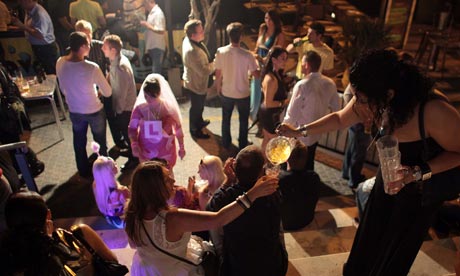
Saturday morning and the first customer of the day had been waiting for the pharmacy to open. She asks for the morning-after pill. I invite her into the consultation room. I record her age (15 years, one month) and her initials, and start a structured interview that incorporates the Fraser guidelines, which allow me to give contraceptive advice or treatment without parental consent to under-16s if I judge they have the maturity to make their own decisions and understand the implications on consent.
I ask why she is requesting the pill – a small proportion of clients do not need it, describing activities that could never lead to conception – but her sexual and menstrual history confirm that she meets the therapeutic criteria developed by the local primary care trust for emergency hormonal contraception. I explain how it works and give her a tablet with a glass of water, a kit for a postal chlamydia screen, an array of pamphlets on contraception and sexual health, and I strongly recommend that she visits the local contraceptive and sexual health (Cash) clinic for further advice.
But I really want to talk to her about boundaries and behaviour – the "why?" as opposed to the "why not?" I want her to make the right future decisions. But that's beyond my remit. She thanks me, adding that she was really drunk.
That last piece of information is unsurprising. Of the 65 clients at an afternoon Cash clinic, 25 received emergency contraception and binge drinking was invariably reported.
The Royal College of Physicians' report last month, Alcohol and Sex: A Cocktail for Poor Sexual Health, stated that 16- to 24-year-olds are among the highest consumers of alcohol and have the highest rates of chlamydia, genital warts and gonorrhoea infections. Early alcohol use is associated with early onset of sexual activity and is a marker for sexually transmitted illnesses and unintended teenage pregnancy. Sexual assault is strongly correlated with alcohol use by both victim and perpetrator.
There is a clear call for a co-ordinated approach between local sexual health and alcohol services. But health promotion messages pale in the face of the advertising might of the global drinks industry. In the 1990s the introduction of alcopops coincided with a 60% increase in alcohol consumption by 11- to 15-year-olds. But despite medical advice, the government has declined to introduce measures to reduce alcohol consumption by young people.
I advise young clients in need of emergency contraception to visit the Cash clinic because I know the nurses will discuss sexual health and binge drinking, and have been trained to address the wider issues of relationships. Young people can be told they don't have to have sex, but as long as they do, the NHS provides free contraception.
Young people in the UK have the worst sexual health in Europe. For the past decade, NHS prevalence maps for social deprivation, alcohol-related A&E admissions, teenage pregnancies and substance abuse have all mirrored one another. Unintended teenage pregnancies and poor sexual health are predominantly both a consequence and a cause of social inequality. The really effective long-term contraception for young people in these parts would be a change of social circumstances, and the installation of ambition and self-esteem.
I delude myself if I think I really helped the young customer. The local pharmacy can offer a lot, but social reform has yet to be commissioned.
• Peter Dawson is a locum pharmacist in West Yorkshire

